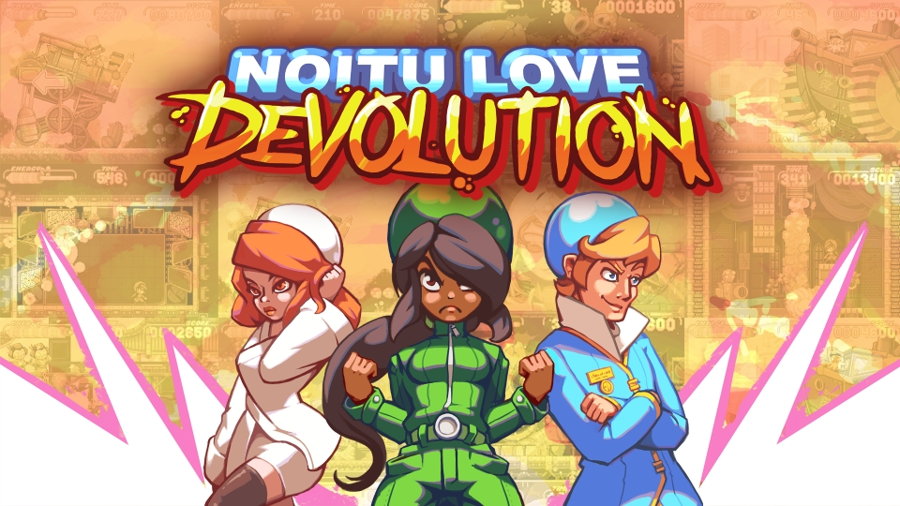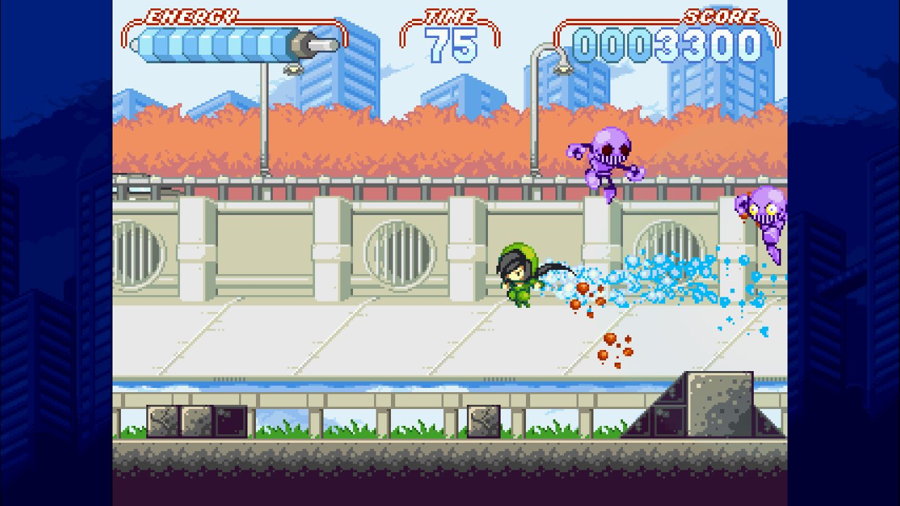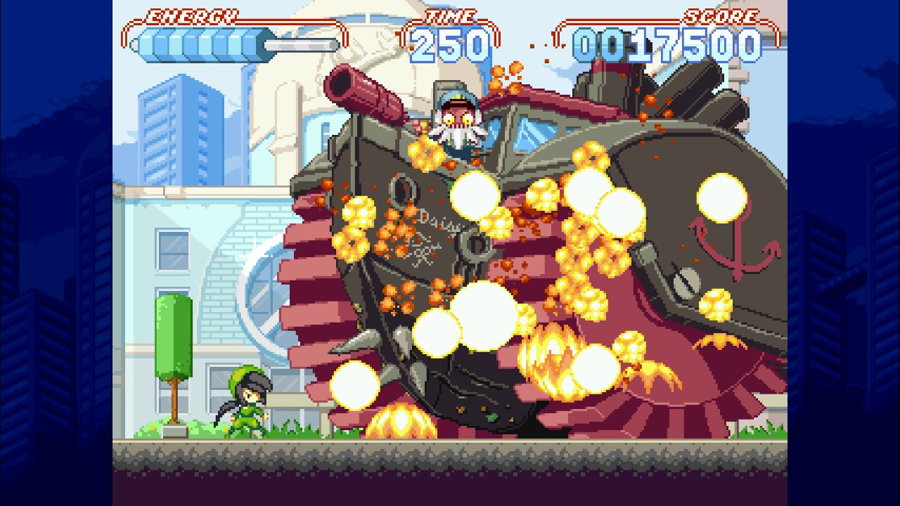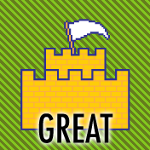Home > Evolution or Paradox? - Noitu Love: Devolution Review
Originally published on Nintendo Castle.

Time for a little history lesson. In 2006, Joakim Sandberg made a little PC game called Noitu Love (those with keen eyes have no doubt noticed what it spells backwards). It was a short little platformer, but ultimately didn’t break any molds. Instead of giving up on the idea, Joakim instead made a drastically different sequel in 2008 titled Noitu Love 2: Devolution, also for PC. There was an attempt to bring the sequel to the Wii in 2010 with Golgoth Studios, but that never came to pass. Fast forward to today and MP2 Games has brought it to both 3DS and Wii U as just Noitu Love: Devolution with exceptional results.
Platforms: PC, 3DS [Reviewed], Wii U [Reviewed]
Developer: MP2 Games
Release: September 15, 2016
MSRP: $4.99
Press Copy provided by MP2 Games
Playing the first game is not mandatory, the intro gives you a general recap of the events and it wasn’t exactly plot heavy to begin with. You play as Xoda Rap (it also spells something backwards), an extremely mobile and powerful girl as she fights off hordes of robotic “Darns” in a variety of colourful and creative levels. Set 100 years after the events of the first game, things have gone awry again as the Darn threat should’ve ended after the first game finished. Various areas have suddenly been transformed into historical set pieces for unknown reasons and it is up to Xoda to solve the mysteries ahead.

Gameplay is not exactly what you’d expect. The game plays a lot like classic Treasure sidescrollers from the 16-32 bit days, like Gunstar Heroes or Mischief Makers. The twist is in the controls. Originally intended for mouse and keyboard controls, both Wii U and 3DS versions use touch screen dependant controls which take a little getting used to but ultimately work like a charm once mastered. The Wii U version also allows for Wiimote and Nunchuk functionality, but these don’t fare as well as the touch controls. The motion controls on the Wiimote are too sensitive and innaccurate, which dampens the experience a little. There are no traditional button controls to speak of, as the game makes heavy use of a cursor to attack. The cursor allows Xoda to fly across the screen with a quick tap, fire a projectile in the direction of it and drop shields in its placement.
The prior mentioned historical set piece story gimmick allows for a wide variety of creative level designs, ranging from a Victorian opera house, a wild west hoverboard sequence and a sakura blossom filled Japanese village. There are many unique gameplay elements too, which make each level feel even more unique from the last. The difficulty won’t be too much trouble once you have a grasp of the controls, but it ramps up as you progress to the end. Upon completion you unlock a harder difficulty and two more playable characters which differ from Xoda by a lot. One of them even plays like a lightgun game.
As an additional note, the 3DS version has a few extra details the Wii U version lacks. The top screen displays your current kills, combo count and hits taken count, useful for high score lovers to gauge their progress. The bottom screen has actually been extended from the original 4:3 aspect ratio of the PC original to fill out the entire screen (the Wii U version just letterboxes things, so no 16:9 unfortunately).

All in all, Noitu Love: Devolution is wonderfully creative spectacle of a game. Despite the length, it’s easily worth revisiting on harder difficulties or as other characters. It’s amazing to think it was created by one man, as the effort really shows itself. Noitu Love: Devolution is one of those games you may find yourself coming back to like many classic 16-bit titles for a quick afternoon of fun.
Pros
- Unique controls that actually work
- Extremely replayable
Cons
- Wii U specific controls aren’t fun
- Core game rather short
Verdict:

Great
Great games are generally good buying decisions and are recommended for those with an interest in the genre. There might be a few flaws that detract from the gameplay, stories, controls, presentations, or value, but the game is still an enjoyable experience that justifies a full playthrough.
Want to know what this score means? Check out our Scoring Guidelines page.